After spending a day at Strasbourg, we decided to step out to explore the region, visiting the beautiful towns of Colmar and Kaysersberg. Getting to Colmar was easy, as there were frequent trains and it was only a short half-hour journey from Strasbourg. There, we found out that Kaysersberg was a short bus ride away, and we decided to visit the little village first before really coming back to see Colmar.
The stretch you see colored in green (map on the right) is the Alsatian wine route, and even though it was late December, the French/German countryside here was utterly gorgeous to soak in. Kaysersberg (or “Mountain of the Emperor“) is this little village of less than 3,000 inhabitants that was, as you may guess from the name, a part of Germany right up until WW-I. It is particularly famous for the quality of its wines and for its renaissance architecture. We spent a few hours strolling the streets (yes, and you’ll be done by then!- it is that small) and then took the bus back to Colmar.
Colmar is known as the capital of Alsatian wine, and is a must-visit if you’re planning for a weekend in the Strasbourg area. When we reached the train station at Colmar, we wandered about aimlessly for a bit, as no one had mentioned the ‘walk’ from there to the old town. Yes, it was quite a walk – a good 15+ minutes- and the blasé environs along the approach didn’t quite make up for it :-)
But once you reach the center of the town – oh, what a gorgeous town it is indeed, and it was still more charming with all the Christmas decorations up. The town largely survived the destructive energy of the French Revolution and the first and second world wars, and for that, we were grateful.
Strangely enough, Colmar is connected to America in more ways than one
- the sculptor who designed the Statue of Liberty was born here, and even has a museum.
- Some may even recognize this gorgeous fountain in Washington, D.C – yes, this too is by Bartholdi.
- Bartholdi also put up the statue of Lafayette in NYC’s Washington Square park.
But it wasn’t just Bartholdi’s works which make Colmar stand out, there is also an intricate and well-preserved 16th century house which is a jewel of renaissance architecture – the Pfister house (Maison Pfister). You’ll see it in the pictures below. We found Colmar to be a lot more laid-back than Strasbourg, and we heard even less English ‘in the air’ than we did earlier.
Visiting Colmar | Practical tips – the most current info is likely to be on wikitravel and tripadvisor.
Tips on driving through the Alsace wine route
A few memories of our trip:

Riverside houses in Kayserberg
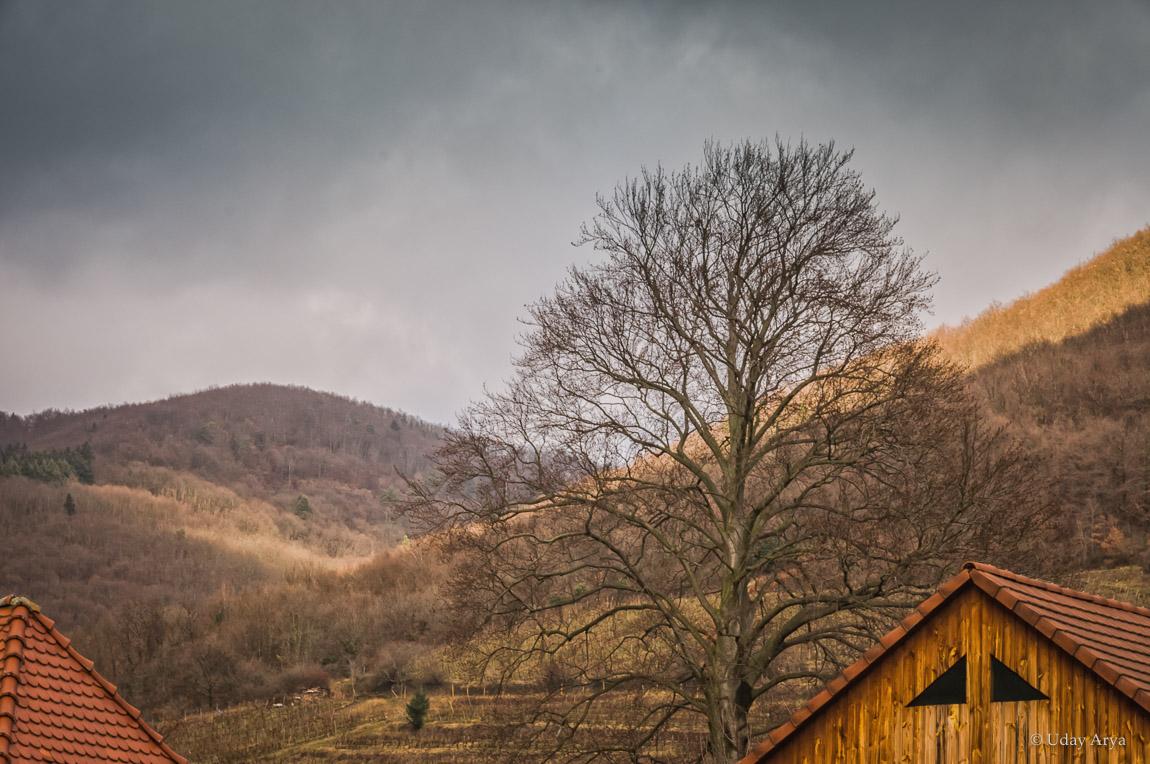
Alsatian countryside – near Kaysersberg
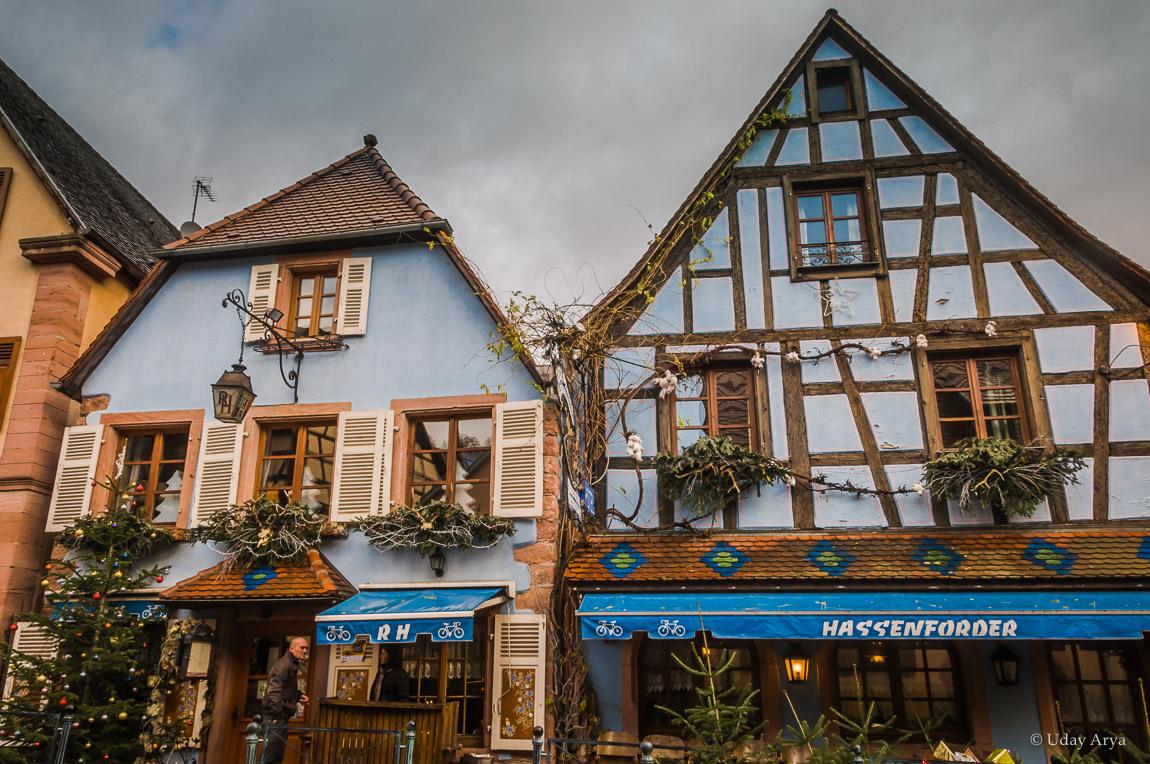
The charming blue houses of Kaysersberg

A bakery at Kaysersberg
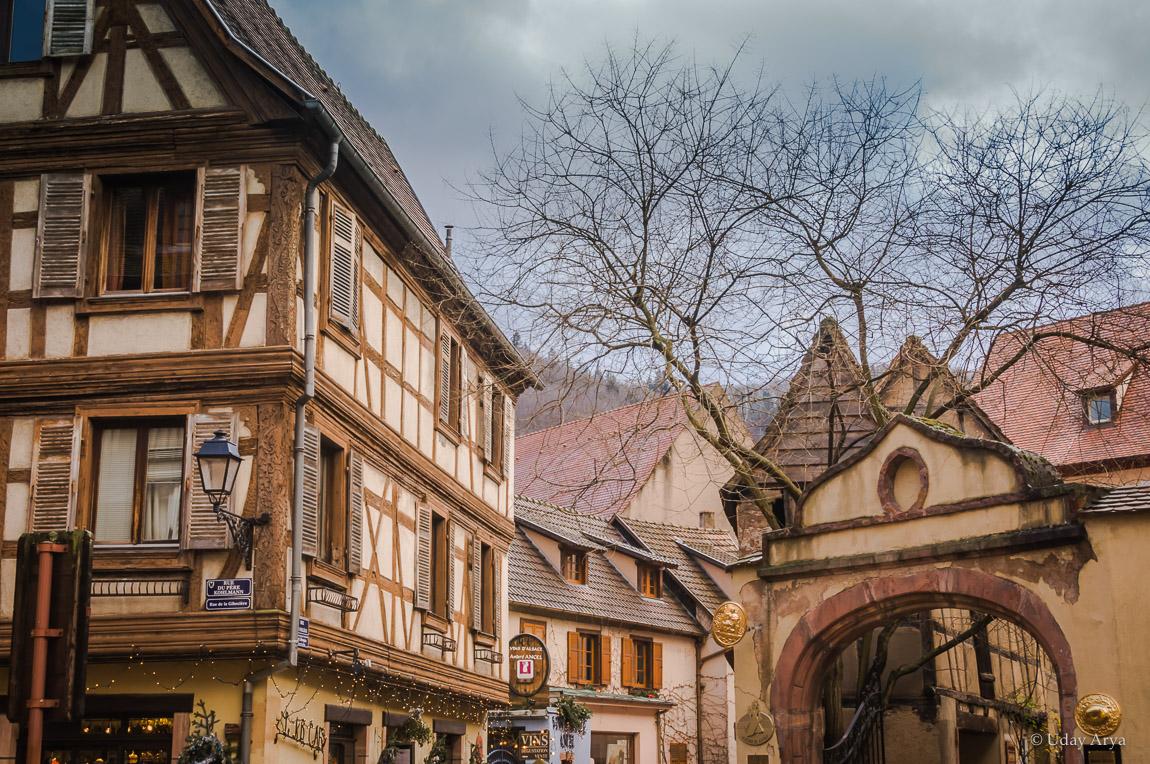
Imagine what it would to be live inside these old houses !

A passageway in Kaysersberg
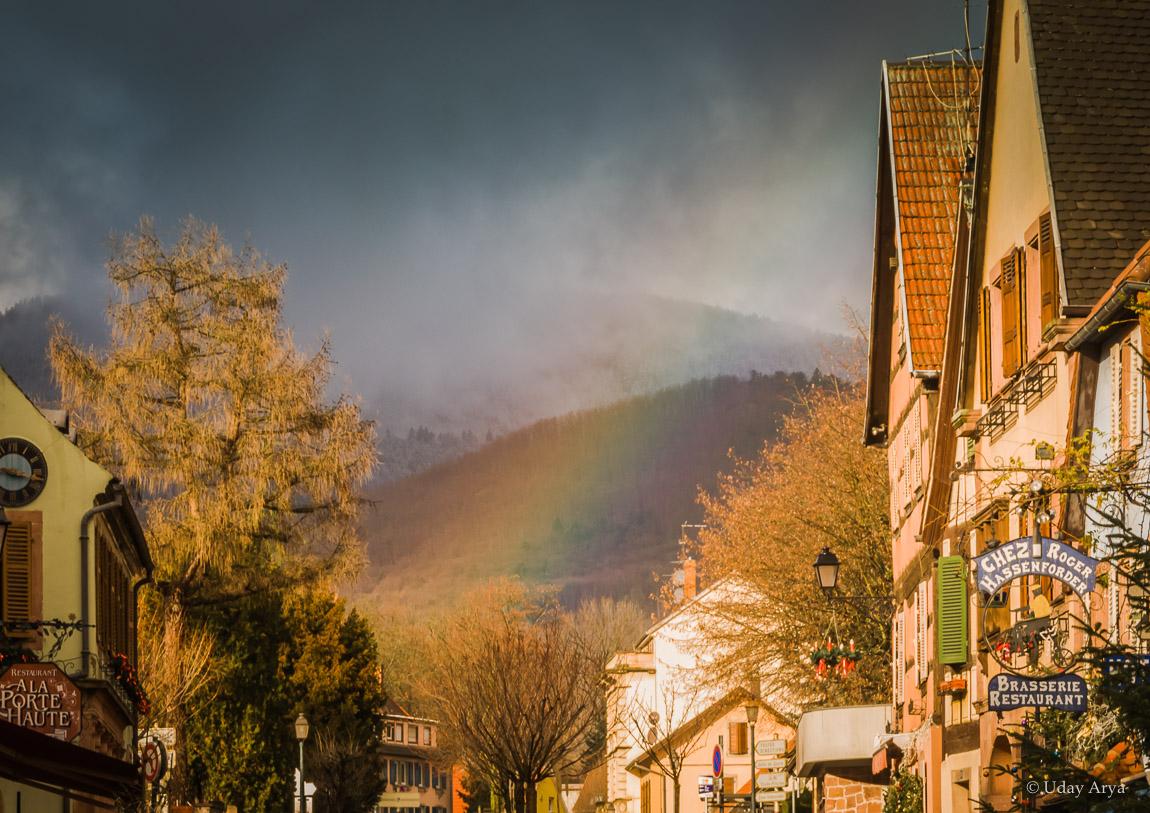
A rainbow across the Kaysersberg view
And now, on to Colmar!
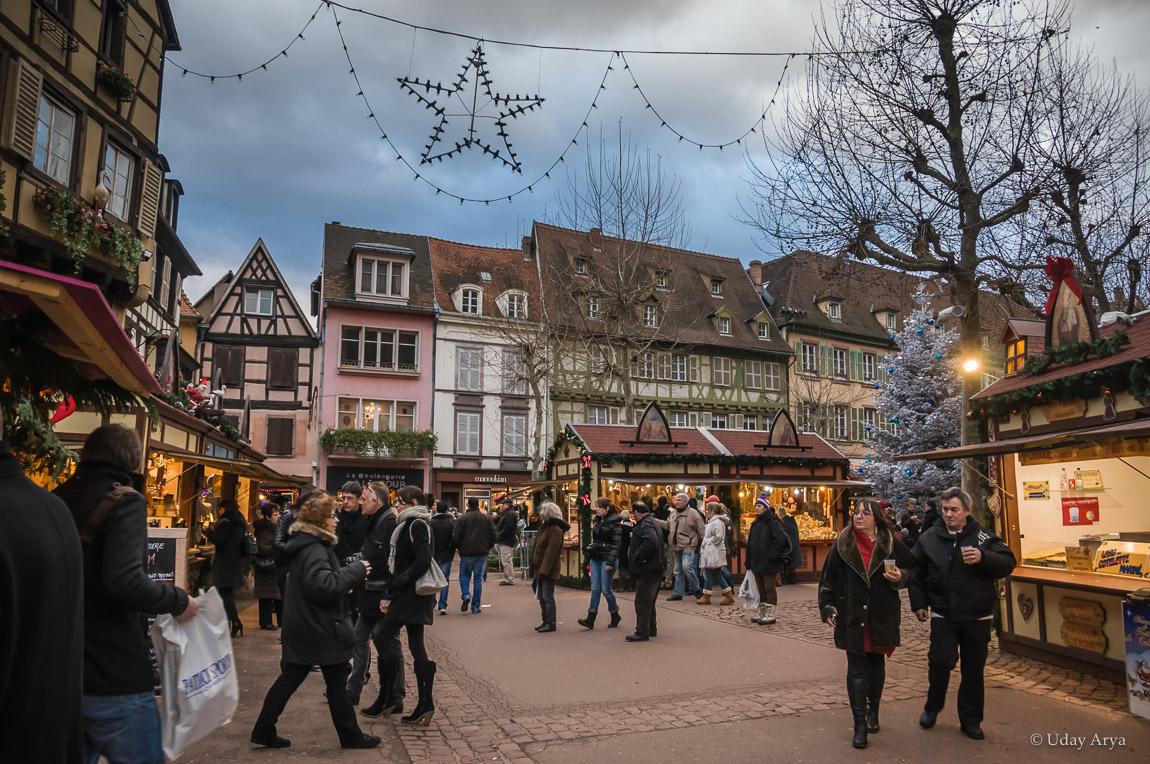
A festive market corner in Colmar
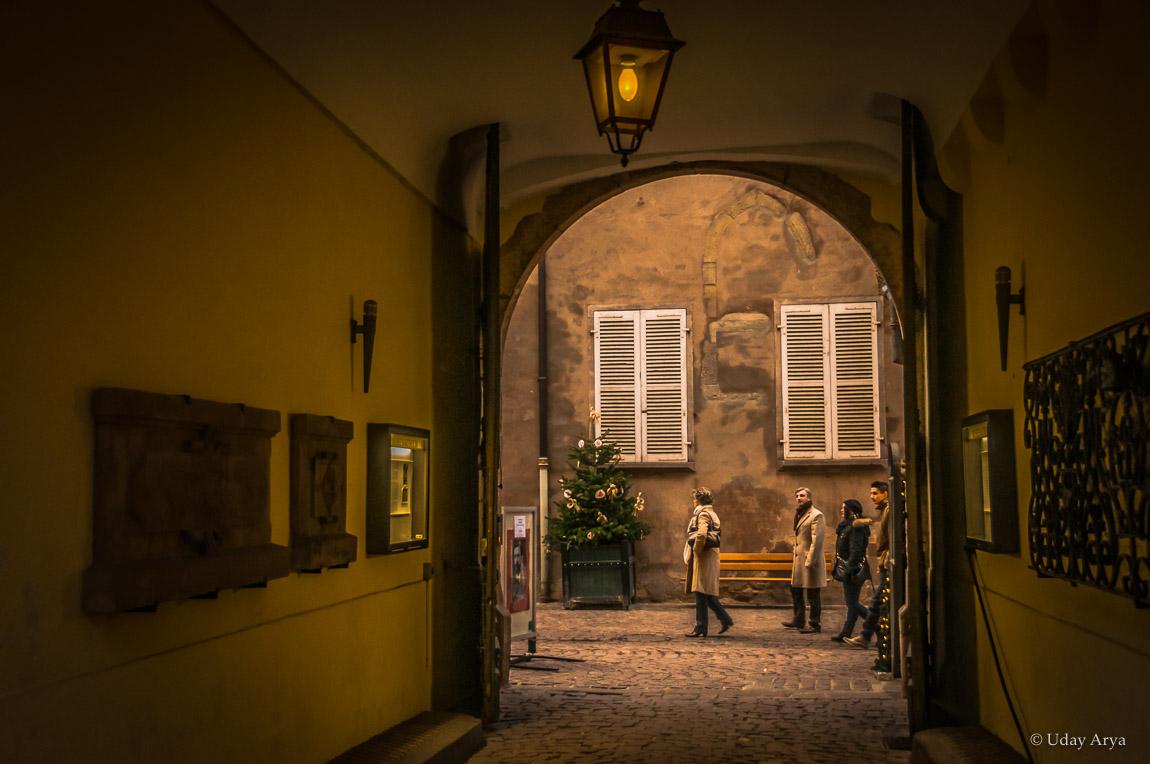
Walking through a passage-way, Colmar
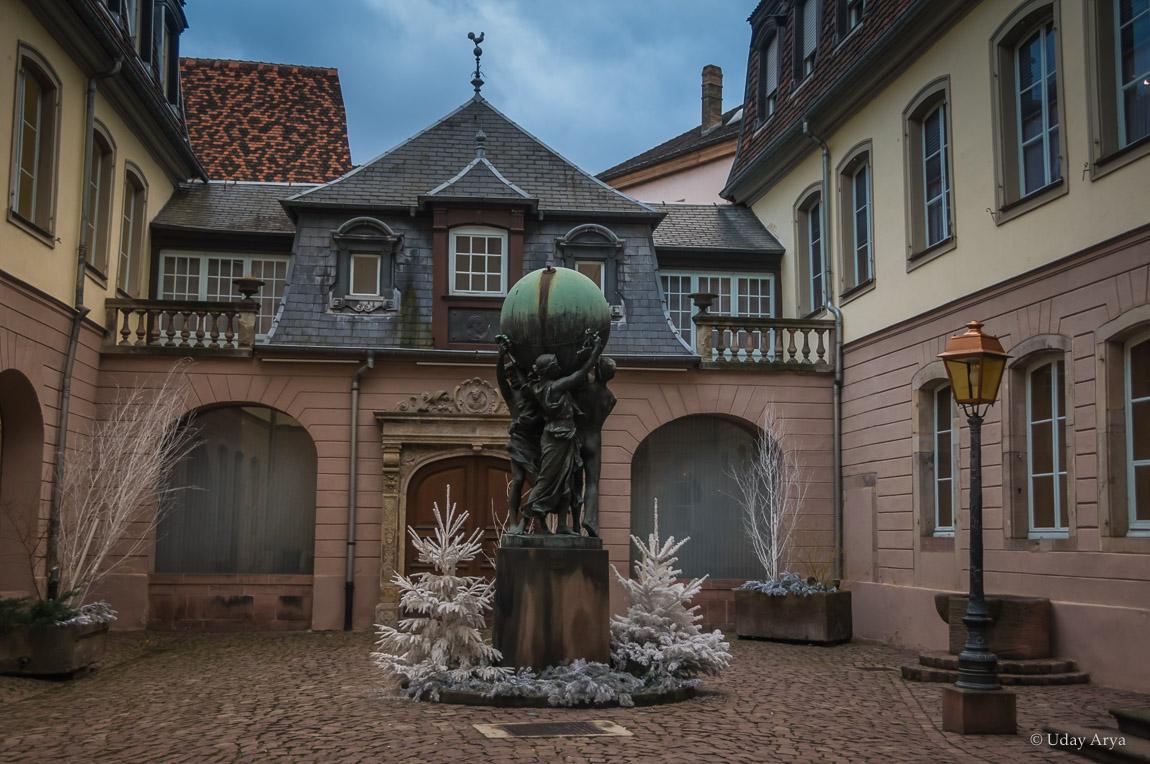
The Bartholdi museum in Colmar
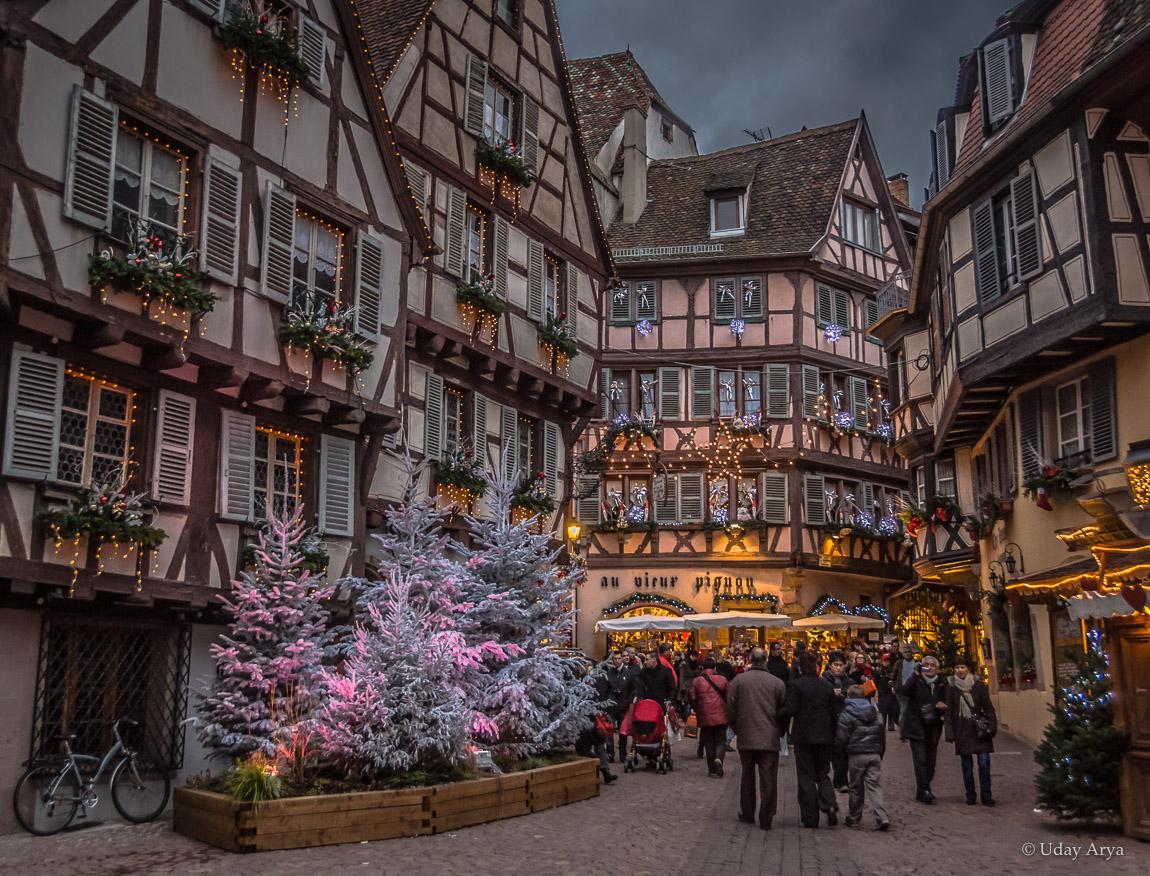
Festive market corner in Colmar
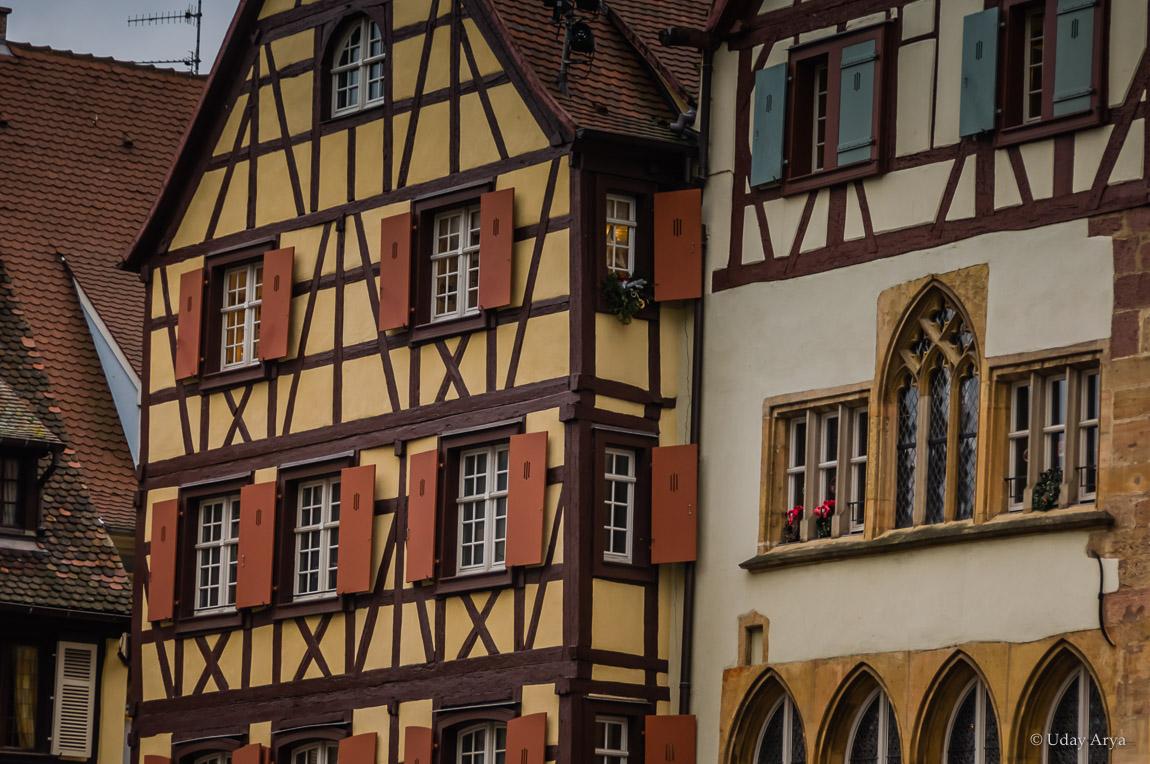
A chequered building facade in Colmar

A little ferris wheel adds to the merry, 2 kids at a time !
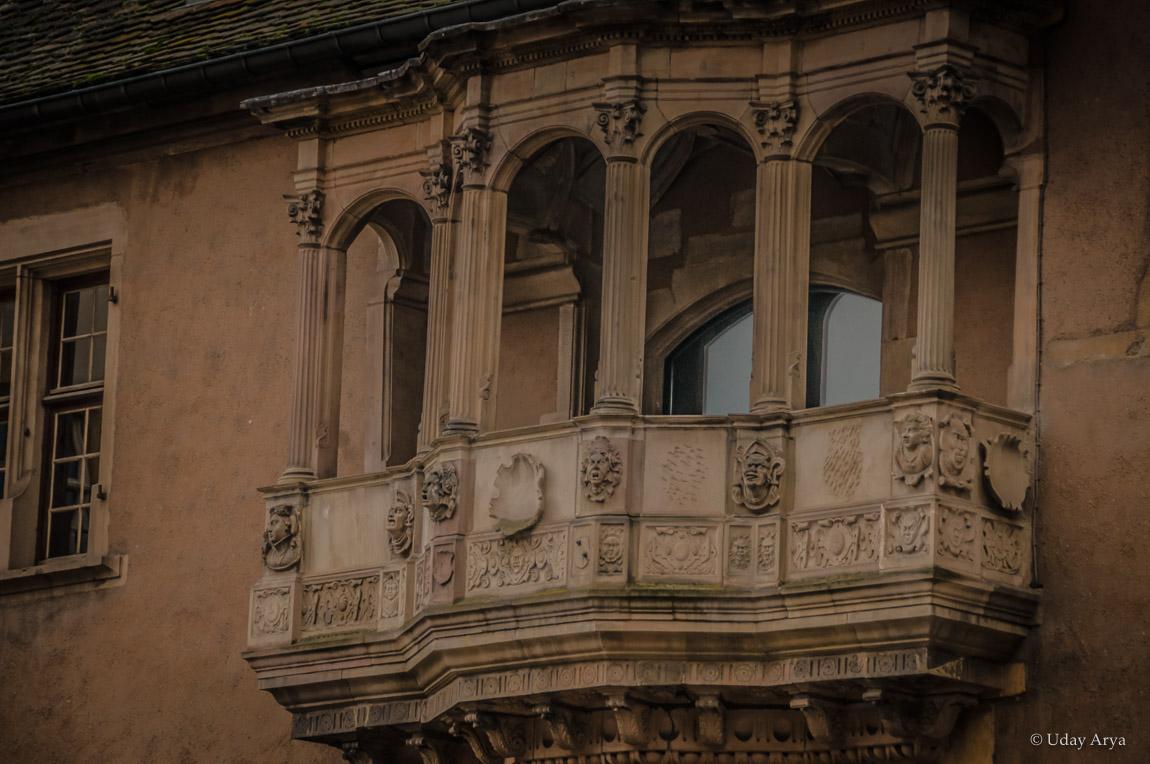
An ornate balcony – these cold parts of the country usually don’t need or have one

A chequered building facade in Colmar






Nice pics with short descriptions.
excellent pics!! why do these places have german sounding names?
thanks Nidhish, and good question! We see often that national boundaries can be at times clear & obvious and at other times quite arbitrary, especially when there is a large mix of cultures & traditions; These two towns (and many other towns in the Alsace area) were in a frequent tug of war between Germany & France.. After the Franco-Prussian war, Germany’s powerful general Bismarck annexed Alsace into the German Empire (1871), though after WW-I, Germany ceded the area to France (Treaty of Versailles) & then again Hitler’s 3rd Reich took control of the area (strategically a huge reserve of coal & metals). After the fall of Nazi Germany, France regained control, but interestingly, the people living in the area don’t just speak French, but also ‘Alsatian’, which is a dialect of German.
Ok thanks for the info!! These are really beautiful places. Luckily the mining stopped due to some reason or these sceneries would have been long gone i guess.
True about most parts of the world. But from what we saw, the French have a very strong sense of the aesthetic and heritage. They seem willing to sacrifice what otherwise would’ve been considered “progress” by the rest of the world to protect and cherish their culture, history and natural environment.
Just a wonderful post. Very impressive picture of the rainbow. what kind of weather to expect in Alsace in December?
Thanks, Svetlana! I’d expect it to be around 0 celsisus, and it may even rain lightly. But good chance of sunshine to make up for all this.. If there’s no sun, and you’re lucky to have fog and mist, the entire area feels quite magical, as it is near picture-perfect.. Enjoy your visit!